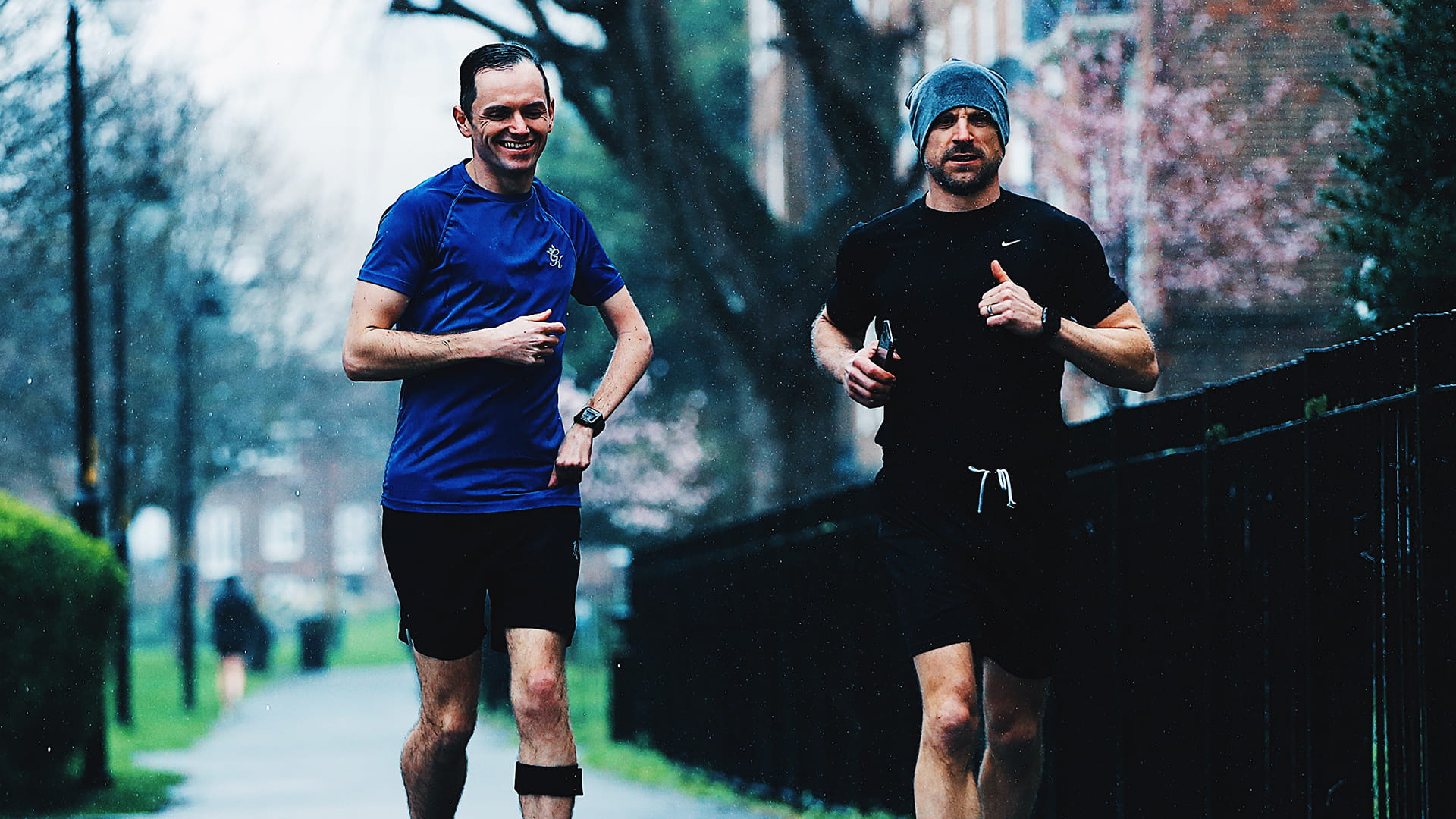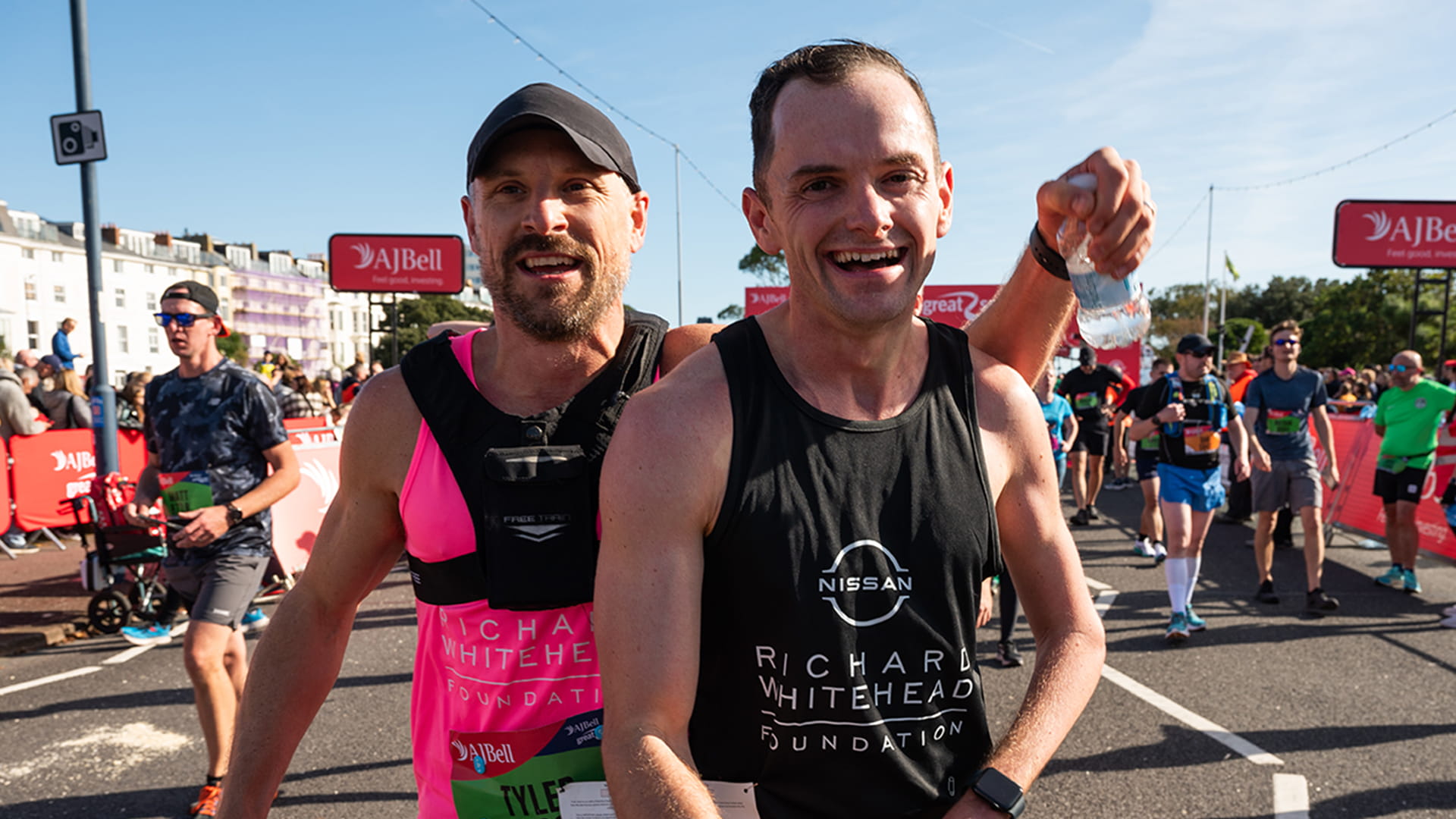Doctors said it was unlikely Anthony Bryan would walk again following surgery to remove a brain tumour when he was a young child. This April, he has his sights set on the Guinness World Record for the fastest marathon (CIH) (male) at the 2024 TCS London Marathon. At his side will be his support runner, Tyler Slade. No pressure, Ty!
The CIH in the record title stands for hemiplegia - paralysis of one side of your body. In Ant’s case, it’s the left. Ant and Tyler met through The Richard Whitehead Supported Runners Project in partnership with Nissan, which pairs participants with disabilities with a support runner for Event Day.
The pair have met on only three occasions. The first time was hours before taking on the 2023 Great South Run. Still on a high after that event, they ran a half marathon at the Goodwood Motor Circuit two months later. For this piece, they joined the London Marathon Events team for a very wet 5K (sorry guys!). Ant and Tyler will meet for a fourth time to take on the 2024 TCS London Marathon. Each run has been unknown territory for Ant, and a fresh test to see how his weaker side will cope.
Ant (right) and Tyler (left) at the 2023 Great South Run.
Ant, 34, from north London, underwent surgery to remove a benign astrocytoma brain tumour aged just six. An operation that would change the course of his life as he suffered a stroke and lost the use of the left side of his body, and his peripheral vision. He says: “The doctors told my parents I probably wouldn’t walk or be very active ever again, so I want to do this [run the 2024 TCS London Marathon] to prove that I can.”
After a few years of intensive physio sessions, Ant learnt how to walk again. “It gave me a different perspective on life. I can now walk. I can now run. So make the most of it!”
Ant took home two gold medals for England in the 800m and 1,500m distances at the 2015 Cerebral Palsy International Sport and Recreation Association (CPISRA) World Games. He also became a personal trainer who shows those with disabilities how to make the most of the gym and gives motivational talks at schools across the UK. You can follow Ant's running journey on Instagram.
While he was at school, his teachers wouldn’t let him join the other children in the playground in case he hit his head, so now he wants to change the narrative around people with a disability and being active.
“Most people with disabilities I train with, all their parents get told your child won’t be able to do this or that,” Ant says. “You get put in a negative box. And by achieving this [running the 2024 TCS London Marathon], I want to say it’s up to you what you achieve. I have parents messaging me on Instagram to say you give us so much hope for the future, and it means a lot.”
Ant got into running at 18 and started competing in 100m and 200m events soon after. However, the World Games made him wonder if he could push himself further. He got to know Richard Whitehead through athletics, and it was Richard who suggested a Support Runner.
If you want to be paired with someone or to become a Support Runner, you can read more about it here. You don’t need prior experience to become a Support Runner as you receive training, and you’ll also get a place at a running event in return for your time.

